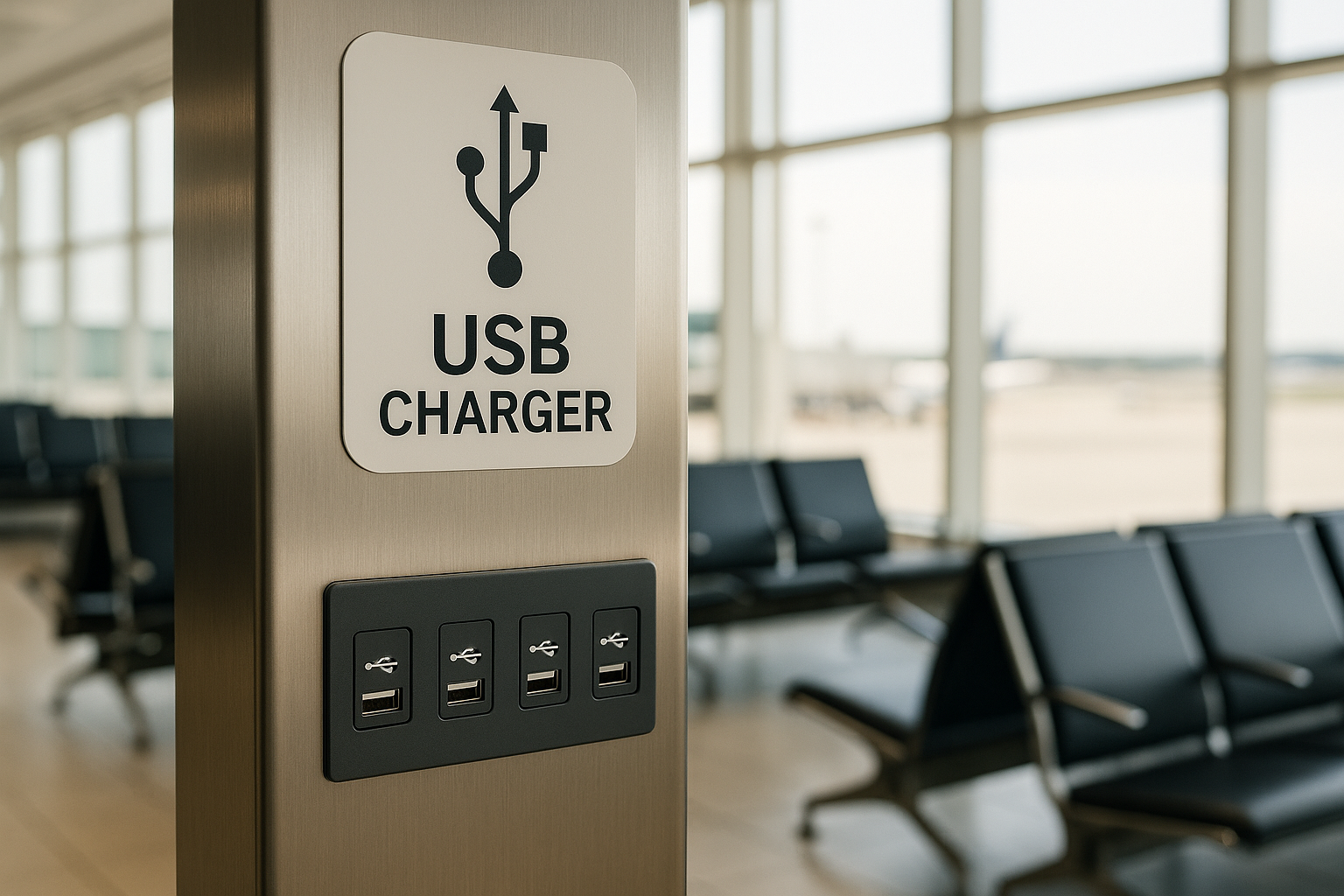TSA Warns about Using Airport USB Chargers and Public WiFi
As summer travel heats up, the Transportation Security Administration (TSA) is urging travelers to be extra cautious when charging their devices at airports and connecting to public WiFi networks. The warning comes amid growing concerns about cybercriminals targeting unsuspecting passengers through public USB charging stations and unsecured wireless connections.
The TSA’s alert centers on a technique known as “juice jacking.” This cyberattack involves hackers tampering with public USB charging ports or cables, allowing them to install malware or steal data from any device plugged in. While real-world cases remain rare, security experts have demonstrated the risk at major tech conferences, showing how easy it can be for criminals to compromise devices through a simple charging cable.
Why Are Airports a Target?
Airports are high-traffic environments where travelers are often in a rush and desperate for a quick battery boost. This makes public charging stations a prime target for cybercriminals looking to exploit the situation. “It’s a perfect storm for hackers—lots of people, lots of devices, and plenty of distractions,” said a TSA spokesperson.
TSA’s Safety Tips
To keep your data safe while on the go, the TSA recommends the following:
-
Use Your Own Charger: Plug your device into a standard electrical outlet using your own charging brick and cable.
-
Carry a Power Bank: Portable battery packs are a safe and convenient way to recharge without relying on public stations.
-
Use a USB Data Blocker: These inexpensive adapters block data transfer while allowing your device to charge, protecting you from potential threats.
-
Be Careful with Public WiFi: Avoid accessing sensitive information, like bank accounts, when connected to public wireless networks. Consider using a VPN for added security.
Public WiFi networks at airports can also be risky. Hackers sometimes set up fake networks with names similar to official airport WiFi, tricking travelers into connecting and exposing their personal information. Always double-check the official network name with airport staff before logging on.
While the threat of juice jacking is still largely theoretical, the TSA’s warning is a timely reminder to stay vigilant about digital security while traveling. A few simple precautions can help ensure your trip is memorable for the right reasons—not because your data was compromised.

